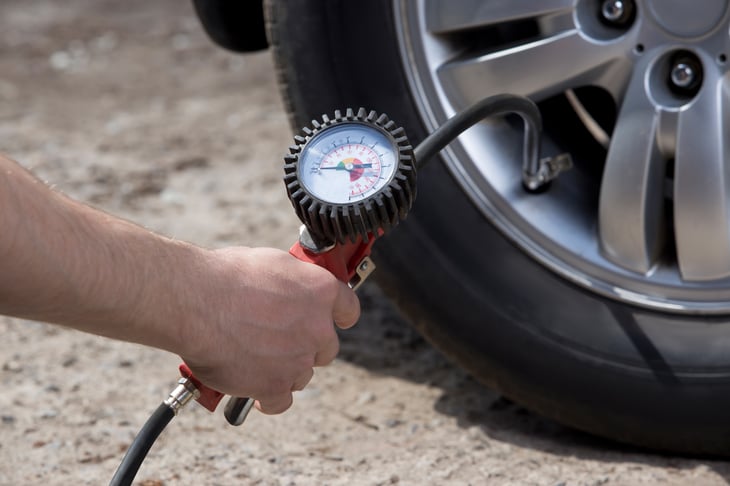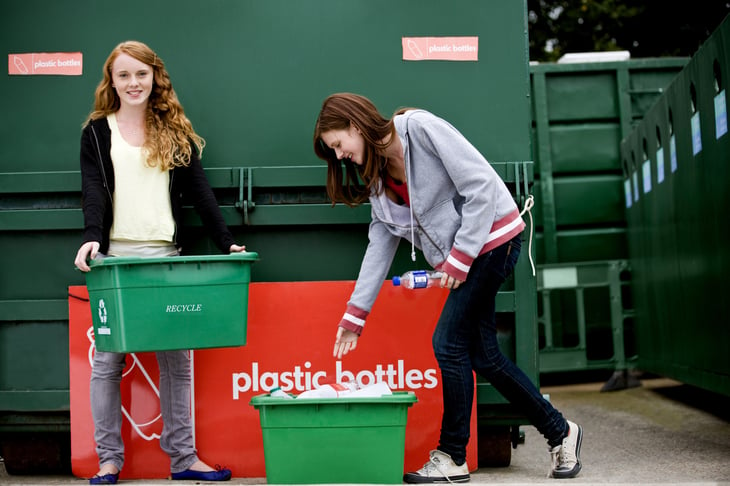
If you feel as though you’re being nickel-and-dimed by businesses nowadays, that’s probably because you are.
Of course, pricing varies from region to region, but many products and services that used to be free will now cost you. It could be only a buck or two, but it all adds up.
Here’s a look at some past freebies that are now long gone.
1. Hotel amenities

You’d think if you go to a hotel advertising a pool and Wi-Fi, those items would be included in the room rate. But apparently not.
Many hotels now tack on resort fees to cover the cost of everything from “complimentary” newspapers to maintaining the on-site gym. It doesn’t matter if you don’t swim, don’t have a computer or don’t care about current events. Many hotels assess resort fees no matter what.
The same is true of early check-ins and late check-outs. Those used to be requests hotels would honor for free if their schedule allowed. Now, The Wall Street Journal reports you may pay as much as $150 for the privilege of staying a few extra hours at a hotel.
It may be possible to negotiate a waiver of some fees, as we explain in “11 Tips for Avoiding Ridiculous Hotel Fees.” But as the saying goes, your mileage may vary.
2. Drink refills

You used to be able to go into any restaurant, virtually anywhere, and get free refills on drinks such as soda pop and coffee.
However, as early as 2013, reports started surfacing that free refills were being phased out in some areas. Now, businesses may require that you purchase refillable mugs or sign up for an app if you want those drinks that were previously free.
3. Extras at restaurants

Speaking of restaurants, I used to get a free handful of dipping sauces when I asked for extras at our local McDonald’s. Nowadays, if I want more than two, I need to fork over some extra cash.
McDonald’s isn’t alone. The local pizza place no longer gives free extra cheese, and I was once at a burger joint that charged a $1.25 fee to share a meal with a friend. Really, I asked? Really, they said.
The Wall Street Journal notes that restaurants may tack on fees for everything from “kitchen appreciation” to “wellness” nowadays.
4. Water

OK, water is still free in many places, but some apparently prefer to pay through the nose for the bottled variety even though it may be the same as what comes from the tap.
And our willingness to pay for bottles seems to have led some restaurants to decide that water will no longer be a freebie for diners.
Going back to McDonald’s (yes, we eat there entirely too much), my non-pop-drinking daughter always orders water. I used to be able to get free water in a cup for her, but now I’m charged for a bottle of Dasani and told the free cup is not an option.
5. Airplanes-everything

Oh, my. Where shall we start with this one?
In the olden days, you would buy a plane ticket, check your bags and maybe enjoy some free in-flight entertainment via a movie projected on a wall. The attendants would give you peanuts, a drink and maybe even a meal if you were on board long enough.
Today, you buy a plane ticket and then find yourself shelling out money for everything from your checked bag to your boarding pass to an in-flight blanket. Money Crashers has compiled a comprehensive list of the various fees you might encounter when flying.
Consider all of the extra charges before simply selecting the carrier with the lowest fare. Also fly prepared: Pack snacks and consider bringing your own entertainment.
6. Returning a rental car

Airlines aren’t the only ones getting a little crazy with their fees. Consumer Reports notes that rental car companies have also found ways to tack on extra charges to the base price of their vehicles.
Most egregious seems to be the early-return fee which is assessed if you cut your rental period short. Dollar Car Rental says its $25 fee is “to compensate us in part for our inability to rent your vehicle during the time reserved for your use.”
7. TV

Like water, you can still get TV for free. Unfortunately, we seem to have hit the point at which paying for our on-screen entertainment seems to be a given for many Americans.
At one time, cutting the cord on cable was supposed to save money. But now, many people have simply replaced one expense with another by signing up for multiple streaming services.
Fortunately, there are still ways to find free TV if you know where to look — see “21 Streaming Services That Are Completely Free.”
8. Air

Oh, sure, the air you breathe is still free … for now. But the air you put in your tires? Now, that’s an entirely different story.
Once upon a time, every gas station in my town had a free air pump. Today, I need two bucks to fill my tires. At least one station’s pump takes credit cards, so I no longer have to hunt for quarters in the change jar.
As with other items on this list, you can still find freebies if you know where to look. FreeAirPump.com maintains a user-generated directory of free pumps. The site also says California and Connecticut drivers are entitled by state law to free air at service stations (although in California it’s only free with a purchase of gas).
9. ATM service

Up until 1996, the largest ATM networks — Cirrus and PLUS — banned banks from charging surcharge fees on in-network transactions. Once that restriction was lifted, it was off to the races for ATM surcharges.
In 2022, customers paid an average of $4.66 to withdraw money from an out-of-network ATM, according to Bankrate.
If you want to avoid paying to use the ATM, you could do business with one of the “6 Banks That Waive or Refund ATM Fees.”
10. Bill payment

There’s nothing quite like being charged a fee for the privilege of paying a bill. And yet, that’s exactly what some companies do now. In the past, it seems as though they were just happy to get your money without making you pay more in order to hand it over.
I seem to run into these convenience fees most often if I try to pay on the phone, but they occasionally crop up online as well. For instance, the company that mows my lawn charges an $11.95 fee if I want to pay online. At least it’s still free to send a check in the mail (minus the stamp cost).
11. National parks

If you’re old enough, you may remember a time when all but a few national parks were free to enter and even camp. Although some parks had experimented with various fees dating as far back as their founding, it wasn’t until 1972 that federal law was amended to authorize recreation fees.
Today, 110 national parks charge an entrance fee, but you can avoid it by visiting during one of the National Park Service’s free admission days.
12. Recycling

When my town first instituted curbside recycling — probably about 20 years ago now — it was a totally free service. You paid a $10 deposit for a bin, and that was it. Now, I am charged a fee for biweekly pickups.
Price comparison website CostOwl says homeowners pay an average of $15 to $35 per month for weekly or biweekly curbside recycling service. But you can still get “free” recycling in some places — cities such as Seattle and Grand Rapids, Michigan, cover the cost with taxpayer dollars.
13. School sports

Back when I was in middle and high school, school sports typically didn’t cost families a penny. Those schools that did toy with the idea of a “pay-for-play” model were met with outrage from both the community and parents.
Today, it’s not unusual for schools, both public and private, to charge those who want to participate in sports. The average sports registration fee is $168, according to the State of Play 2022 report from the Aspen Institute, which includes data from both school sports and non-school sports programs.
Of course, the participation fee is only one expense related to sports. The report notes that when you add in uniforms, travel, lessons and coaching fees, parents spend an average of $883 annually on their child’s primary sport.
14. Grocery bags

Grocery bags are still a freebie in much of the country, but residents in some areas must now pony up a few cents if they want to take their purchases home in a store-provided bag. For instance, California has banned single-use plastic bags, and retailers must charge at least 10 cents for recycled paper bags.
Even in states where there is no law, some retailers are taking matters in their own hands. Grocery chain Wegmans phased out plastic bags in 2022 and began charging 5 cents for each paper bag.
15. Food delivery

I live ridiculously close to our local pizza place, and for years, they delivered my meals free of charge. Now, it costs me a minimum of $5 for them to travel less than two miles to my house, and I’m not sure why since they assure me the driver doesn’t pocket the cash and I should still tip.
There are some restaurants that still offer free delivery, but there is usually a catch, such as you have to order through an app. Or you could sign up for a membership with a service like Grubhub or DoorDash, but you could be paying a hefty markup on your food that way.
Consider doing take-out to save.
16. Information on the internet

In the early days of the internet, almost everything online was free. Granted, it wasn’t exactly the same caliber of content you’ll find nowadays, but you couldn’t beat the price.
Today, membership sites aren’t uncommon. You may have to join to post on a message board or view content or download reports. The best you can do is wait for a special promotion to sign up.
Luckily for you, Money Talks News continues to offer plenty of totally free personal finance news and information.





Add a Comment
Our Policy: We welcome relevant and respectful comments in order to foster healthy and informative discussions. All other comments may be removed. Comments with links are automatically held for moderation.